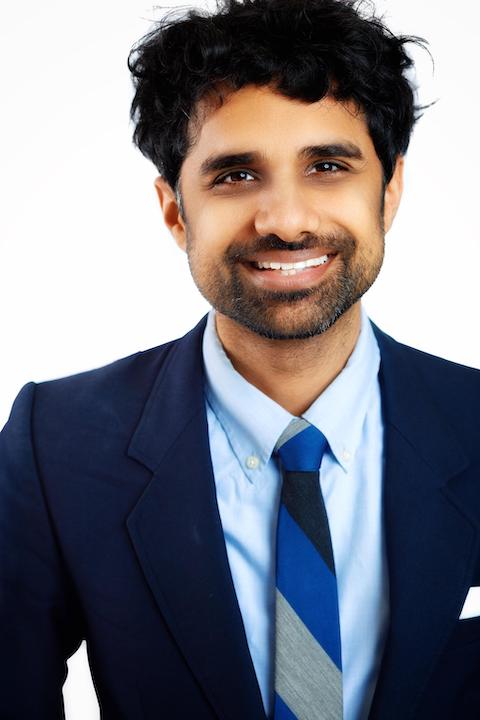
Rosenthal Senior Counsel, Building the Bench
Rosenthal Fellow, Building the Bench

Rosenthal Fellow, Building the Bench
“For so many decades, Alliance for Justice has been highlighting what’s been happening in our courts, and also very specifically the importance of the actual personnel on the courts,” Vasu Abhiraman explains. He “got the bug” for this work during his time at the ACLU of Georgia; although he worked in policy, he saw several of his colleagues involved in the process of filling two important judicial vacancies in Atlanta.
“So much of what determines our rights and our liberties is within the control of the courts, but it feels like it happens under the radar,” he adds. Demystifying the courts is the crux of his focus at AFJ: as the Helen Rosenthal Senior Counsel for the Building the Bench program, he spearheads a national coalition that works on the pre-nominations process of filling federal and state Supreme Court judicial vacancies.
With each potential nominee, there’s a slew of considerations—what the White House is looking for; what the home state senators of the vacant seat want, and what groups in the state; and which candidates would diversify the courts, especially those with professionally diverse experience as lawyers litigating in areas of public interest law like criminal legal reform, voting rights, reproductive justice, environmental justice, labor, and LGBTQ+ law to enshrine rights.
This balancing act of stakeholder concerns and decision-making draws on a skill he calls “iterative logic.” (Before he went to law school, he was a software engineer; watching An Unreasonable Man, a documentary about Ralph Nader’s fight for consumer rights, spurred him to become a lawyer.) “I feel like that’s how my brain works — trying to figure out core components, trying to figure out what makes a process better and what needs to be changed,” he explains.
Vasu credits his ability to collaborate with different, sometimes competing constituencies to his childhood in Georgia, which is the eighth-most populous state, a hub of Black culture and history, and home to many immigrant and refugee diasporas.
“Growing up in Georgia, I feel like I met every kind of person,” he explains. “And especially growing up as a second-generation immigrant, you have to be somebody who keenly observes the environment around you.” Between first and sixth grade, he moved five school districts; he remembers one summer where he returned with his parents from vacation in India, then started a new school just days later, jetlagged and dazed.
Although that experience was difficult, he draws a throughline between it and his life today: “I employ some of what I learned back then to relate to people and make the connections you need to make to advance the mission of AFJ.” He also draws on his love of singing to bridge differences: “Sometimes, when I need to relate to somebody who might be from a different side of the aisle, I can do that through music.” (For several years, he was a member of the All Souls Unitarian Church’s choir; as part of the group’s advocacy in 2014 to highlight the importance of voting rights, he sang John Mayer’s “Waiting on the World to Change” in front of the Supreme Court.)
At AFJ, Vasu is famous for his extensive repertoire of puns (the “highest form of humor, not the lowest!”). “I feel like it has a lot do with being a third-culture kid,” he explains — his parents speaking Tamil at home; him learning English, and being, at times, the only kid in the entire grade with a cultural background like his. “Decades before I knew the term codeswitch, I was doing that naturally. And that led to me playing around with language.”
His early puns put together Tamil words that sounded like English ones. One of “the original superhit puns” he came up with involved “vandam” (Tamil for “I don’t know” or “No thank you”) and the Belgian action star Jean-Claude Van Damme: “What actor refuses everything? Jean-Claude Vandam.”
As is the case with Vasu, he’s able to connect disparate parts of his life – in this case, jokes — to a core purpose that drives him. “In some ways, the job of lawyers in general is to parse text,” he says. “And what represents parsing words in text more than trying to make ridiculous puns with them?